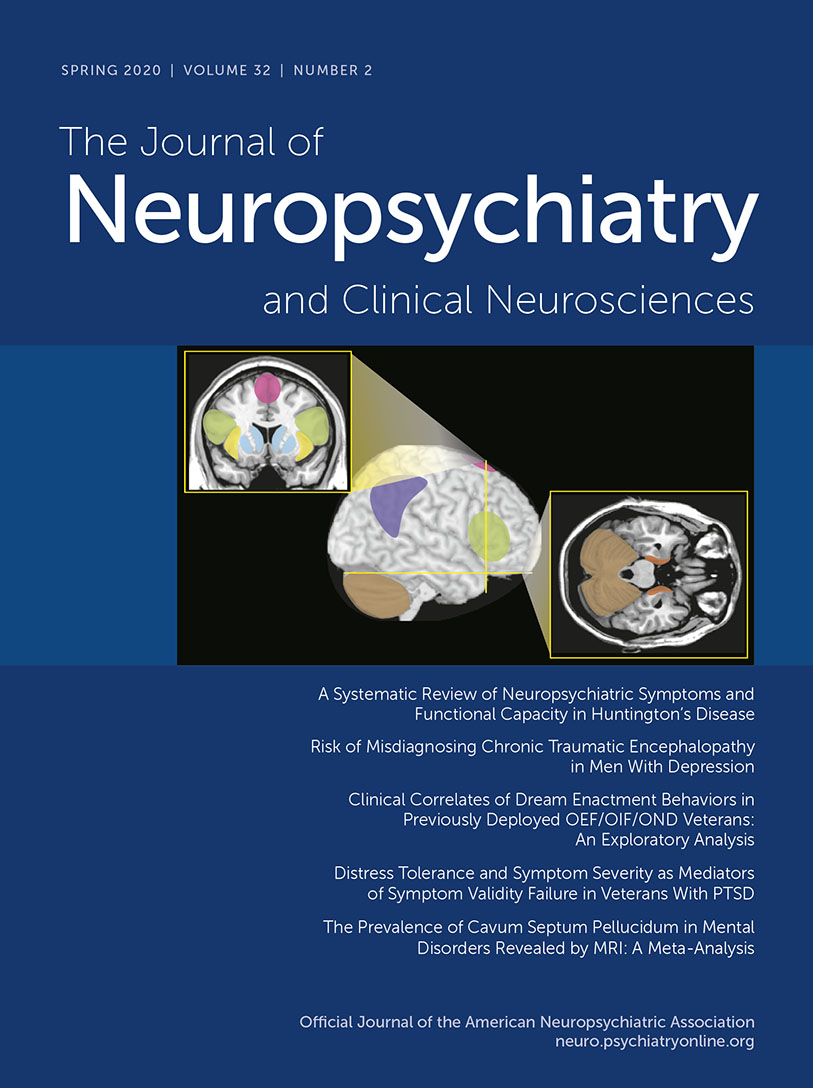A Systematic Review of Neuropsychiatric Symptoms and Functional Capacity in Huntington’s Disease
Abstract
Objective:
Neuropsychiatric symptoms are known to increase caregiver burden and decrease patient quality of life among patients with Huntington’s disease. Functional capacity is an outcome commonly used in Huntington’s disease clinical trials to quantify disease progression or intervention response. Some studies have examined the relationship between neuropsychiatric symptoms and functional capacity; however, this evidence has not been synthesized. The authors reviewed existing evidence on the association between neuropsychiatric symptoms and functional capacity in Huntington’s disease.
Methods:
A systematic review was conducted using PubMed and CINAHL. Articles were included if they described primary research in humans with Huntington’s disease, measured one or more neuropsychiatric symptoms and functional capacity, and reported statistical methods to identify associations between the two concepts. Additional eligible articles were identified through reference mining and review of other relevant literature.
Results:
Fourteen articles were eligible for review. Neuropsychiatric symptoms were measured individually, in clusters (i.e., depression, anxiety, and suicide items contributing to a depression cluster score), or with an overall score. Significant associations with decreased functional capacity were found most commonly with depression (N=7, median r=0.48) and apathy (N=5, median r=0.47). Other neuropsychiatric symptoms, clusters, and overall scores were all associated with functional capacity in three or fewer studies.
Conclusions:
There is some evidence that depression and apathy are associated with decreased functional capacity in Huntington’s disease. Other neuropsychiatric symptoms have been infrequently examined. Further knowledge of the relationships between neuropsychiatric symptoms and functional capacity will identify areas for intervention and improvement of outcomes in patients with Huntington’s disease.



